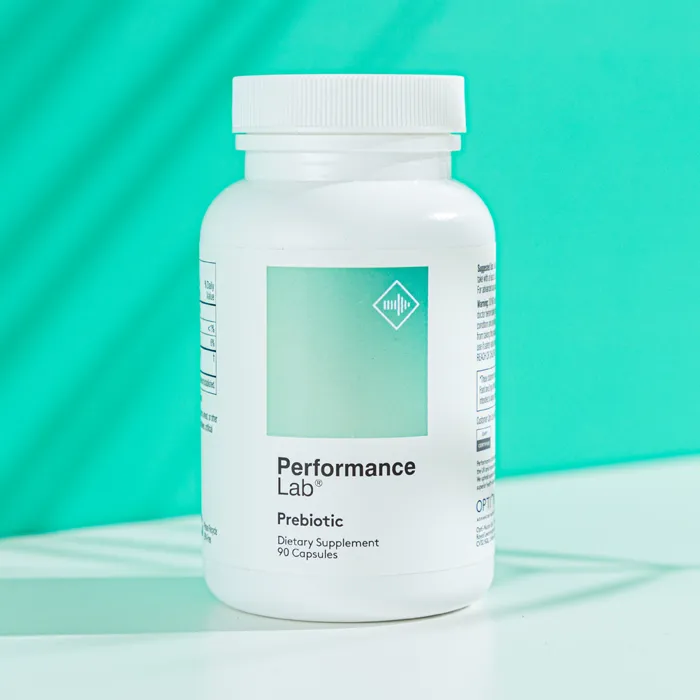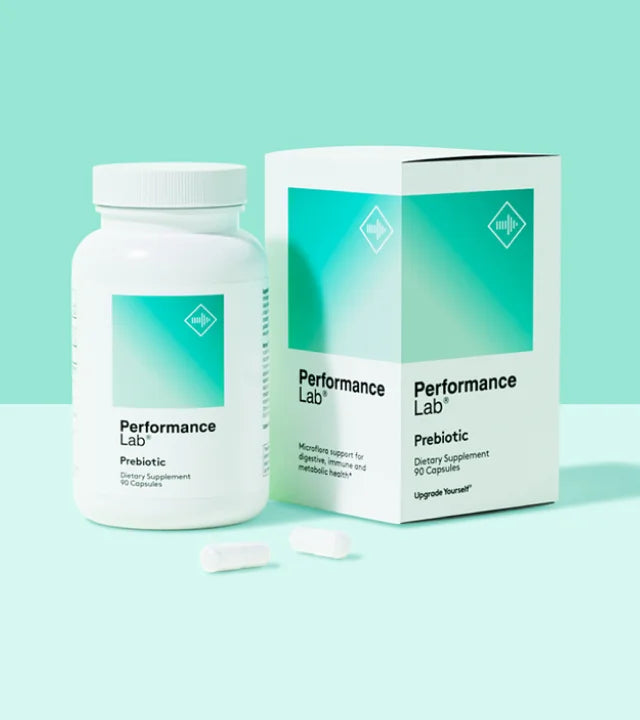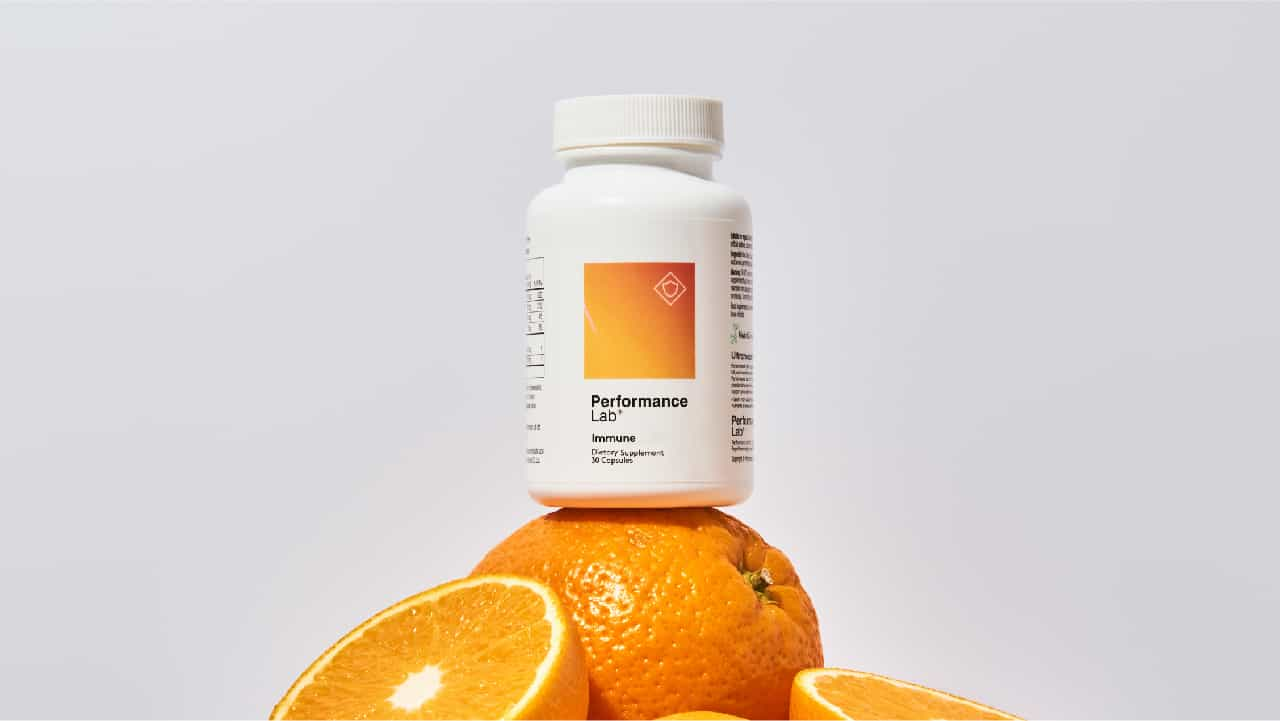Glutathione is potentially the most powerful - and useful - antioxidant in the body, helping to remove toxins, protect cells, strengthen the immune system, and much more.
Glutathione is produced naturally by the body, and its antioxidant properties are key to its role in protecting cells and supporting the immune system. It plays a particularly strong role in the gut, acting throughout the digestive tract to aid digestion.
Glutathione production in the body depends on the availability of certain nutrients and amino acids, and some supplements are formulated to support this natural production process.
Supplements may help you top up your levels of this powerful antioxidant, but do they come with side effects? Not to be indelicate, but does glutathione - cough, cough - influence your bowel movements and make you poop? Let’s find out…
Key Takeaways
- Glutathione supports overall gut health by reducing oxidative stress and protecting intestinal cells.
- It may influence digestion indirectly by supporting gut barrier health, but it is not a laxative.
- Changes in bowel habits are more likely influenced by overall gut health rather than a direct effect of glutathione.
- Maintaining healthy glutathione levels can support immunity, detoxification, and digestive function.
- Pairing glutathione with a prebiotic like Performance Lab Prebiotic may further benefit digestive balance.

All about Glutathione

Described as a ‘master antioxidant’, glutathione is synthesized in the liver from three amino acids, glycine, glutamic acid, and cysteine. The glutathione produced in the liver plays a vital role in reducing inflammation and oxidative stress.
Its importance in the body can’t be over-estimated - low levels have been associated with several different illnesses and conditions, such as cardiovascular disease (where the health of blood vessels is crucial and glutathione may help protect them), cancer, arthritis, and more. (1, 2)
Research has also explored glutathione's potential role in improving lung function in conditions like cystic fibrosis, though current evidence is limited and inconclusive.
Here's what we do know.... found in every single cell in your body, glutathione offers powerful support for the immune system and helps to tackle oxidative stress that can damage tissue and cells. It offers numerous benefits across the whole body, including for your digestive system.
Before we look at any potential side effects of glutathione supplements, let’s first discuss the importance of a healthy gut for our digestive and overall health.
The Health Benefits of a Healthy Gut

Before we discuss how glutathione impacts the digestive system, let's make sure we know how important the gut is to our health. For instance, did you know:
- 70% of our immune cells are in our gut.
- Our gut microbiome plays hosts to trillions of microorganisms that help to keep the bacteria in our bodies balanced and healthy.
- Good bacteria in the gut multiplies in order to keep the bad bacteria in check. If you have too much bad bacteria in the gut, it may lead to IBS, Crohn's disease or Ulcerative colitis.
- Experts believe the gut 'talks to the brain'. The balance of bacteria in our gut may influence our emotions and how we process things via our senses. Changes in that balance may be associated with anxiety, depression, autism and more.
- The bacteria in our gut also influences the heart and kidneys.
- Studies on obesity are examining whether an imbalance of bacteria in the gut microbiome may interfere with the brain's signal that tells us that we are hungry or full. (3, 4, 5)
It seems clear then that a healthy balance of gut bacteria is crucial for overall good health, so how can we ensure we keep that balance? And how can we alter our gut bacteria should it be necessary?
Prebiotics and Probiotics
Prebiotics and probiotics are one of the best ways to alter and improve the balance of the bacteria in our gut. Probiotics are live microorganisms with health benefits, or more of the 'good bacteria'. They add to the bacteria already in your GI tract, helping to balance out the microbiome.
Prebiotics are food for probiotics. You can find them in foods like bananas, garlic, leeks, onions, asparagus, and more. (6)
As a supplemental option, you can opt for a quality prebiotic supplement such as Performance Lab Prebiotic, which includes Inulin-FOS - a prebiotic that helps to boost Bifidobacterium in the gut, the sort of probiotics that we want.
I’ve improved my gut health exponentially. Can’t recommend them enough.Josh S

How Glutathione Helps Our Gut Health and Digestion

Glutathione can also benefit our gut health with evidence suggesting that it can do so via several mechanisms.
They include:
1. Tackles Oxidative Stress
Oxidative stress occurs when there aren’t enough antioxidants to combat free radicals in the body, which can cause DNA damage and inflammation. It has been linked to certain diseases and medical conditions.
Glutathione is a potent antioxidant that helps to neutralize those free radicals and reactive oxygen species, as well as regenerating other antioxidants - such as vitamins C and E - to keep them active. (7-10)
Glutathione and related enzymes play a crucial role in defending the body against oxidative stress. Glutathione peroxidase is an important enzyme that helps protect against oxidative stress and is linked to immune and sleep health, with lower levels associated with issues such as insomnia.
2. Reduces Inflammation
When our immune system triggers, cytokines cause inflammation as our body seeks out and tackles the threat. Unfortunately, this inflammation can get out of hand and cause its own danger to the body - and glutathione helps to control it. Helping to fight invaders without out-of-control inflammation. And remember that 70% of our immune cells are in the gut, so this is important. (11, 12)
3. Strengthens the Gut Lining
Glutathione is abundant in the mucosal cells that make up the gut lining, which helps to strengthen and regenerate the barrier's integrity. This is important as the lining prevents toxins and bacteria from escaping from the gut.
It should also help with the absorption of nutrients and hopefully prevent Leaky Gut, when a porous intestinal lining allows larger molecules through. (13-16)
4. Improves Gut Microbiome
I mentioned earlier that prebiotics can help to shift the balance of the gut microbiome. So can glutathione. Studies have shown this to be true.
Study: A six-month trial of glutathione supplementation of people with type two diabetes showed significant changes in the participant’s gut microbiome - specifically, an increase in beneficial bacteria and a decrease in bad bacteria.
How to Naturally Boost Glutathione Levels

Glutathione levels can be increased naturally through a healthy lifestyle, including a balanced diet, regular exercise, and stress management.
A diet rich in glutathione-boosting foods, such as cruciferous vegetables, can help support overall health and well-being. Opt for foods rich in sulfur, such as kale, broccoli, garlic, meat, eggs, mushrooms, fish, and onions - they can help improve glutathione levels naturally.
Be Aware...
A poor diet and lifestyle can deplete glutathione levels, as can smoking, toxins, stress and certain medications. Avoid environmental toxins and harmful substances.
A balanced diet and healthy habits can help maintain optimal glutathione levels, and some people choose supplements to support their antioxidant status.
Best Glutathione Supplement

There are many different forms of glutathione supplements, from tablets to sublingual, to liposomal to glutathione injections and IV glutathione therapy. However, many have absorption issues, while injections carry their own danger.
Inhaled glutathione is another method of administration, sometimes used in clinical settings, but it can cause respiratory side effects, especially in people with asthma.
Warning
Unregulated glutathione injections may cause allergic reactions and organ damage. Such injections are not approved by the FDA.
Setria-Glutathione is the answer to that - a patented version of glutathione made to be easy for the body to absorb.
A Penn State University trial demonstrated that Setria-Glutathione raised glutathione levels in blood and cells over one, 3 and 6 months. As a result, oxidative stress was reduced, while Natural Killer cells were twice as effective at fighting infections. (17)
Performance Lab Immune contains 250mg of Setria-Glutathione, alongside LC-Plasma probiotic, helping to keep your gut in tip top shape.
Side Effects of Glutathione

Before taking glutathione, it’s important to know the potential side effects, including the question we asked at the beginning of this article - does glutathione affect your bowel movements?
The short answer is: possibly!
Studies show the most common side effects of oral glutathione supplements are:
- Flatulence or gas
- Loose stools
- Bloating
- Abdominal cramping (typically mild)
The good news is that these side effects are typically mild and usually occur when you’ve just started the supplement or because you’re taking too high a dose. They tend to resolve by themselves once your body gets used to the supplement. (18, 19)
Question: Does glutathione make you poop?
Answer: Possibly, but side effects tend to be mild and tend to resolve without intervention once the body gets used to the supplement.
To minimize potential side effects from glutathione supplementation, make sure you adhere to the recommended dosages and take the supplement in the correct form for your needs.
You should also speak to your doctor or other healthcare professionals, especially if you have any pre-existing health conditions, as they can help with dosing decisions and managing potential interactions with medications or supplements.
Glutathione interacts with certain medications and other supplements, and there is limited scientific data on these interactions, so caution and consultation with a healthcare provider is advised.
Finally, opt for a supplement from a reputable manufacturer to be sure of safety and quality, like Performance Lab Immune.
Take Home Thoughts
Proper levels of glutathione are essential for overall health and longevity, helping natural detoxification processes and boosting the absorption of nutrients like calcium.
Low glutathione levels have been linked to oxidative stress which may play a role in conditions such as cardiovascular disease and inflammatory bowel disease.
Glutathione also plays a key role in supporting liver function and may help prevent or manage nonalcoholic fatty liver disease by protecting the liver from oxidative stress and fat build-up.
A quality glutathione supplement may help to top up your glutathione levels. We recommend Performance Lab Immune with the highly-absorbent Setria Glutathione.
And yes, you may experience a little gastric upset when first taking any glutathione supplements until the body gets used to them.
The same may be true of prebiotics like Performance Lab Prebiotic but this should die down once your gut microbiome adapts.
And then you'll be glad that you took the risk!
References
- Townsend, D. M., Tew, K. D., & Tapiero, H. (2003). The importance of glutathione in human disease. Biomedicine & Pharmacotherapy, 57(3–4), 145–155.
- Julius, M., Lang, C. A., Gleiberman, L., Harburg, E., DiFranceisco, W., & Schork, A. (1994). Glutathione and morbidity in a community-based sample of elderly. Journal of Clinical Epidemiology, 47(9), 1021–1026.
- UCLA Health. (n.d.). If you want to boost immunity, look to the gut. https://www.uclahealth.org/news/article/want-to-boost-immunity-look-to-the-gut
- Cleveland Clinic. (n.d.). Gut Microbiome. https://my.clevelandclinic.org/health/body/25201-gut-microbiome
- WebMD. (n.d.). How Your Gut Health Affects Your Whole Body. https://www.webmd.com/digestive-disorders/ss/slideshow-how-gut-health-affects-whole-body
- WebMD. (n.d.). How Your Gut Health Affects Your Whole Body. https://www.webmd.com/digestive-disorders/ss/slideshow-how-gut-health-affects-whole-body
- Loguercio, C., & Di Pierro, M. (1999). The role of glutathione in the gastrointestinal tract: a review. Italian Journal of Gastroenterology and Hepatology, 31(5), 401–407.
- Uttara, B., Singh, A. V., Zamboni, P., & Mahajan, R. T. (2009). Oxidative stress and neurodegenerative diseases: a review of upstream and downstream antioxidant therapeutic options. Current Neuropharmacology, 7(1), 65–74. https://doi.org/10.2174/157015909787602823
- Biswas, P., Dellanoce, C., Vezzoli, A., Mrakic-Sposta, S., Malnati, M., Beretta, A., & Accinni, R. (2020). Antioxidant activity with increased endogenous levels of vitamin C, E, and A following dietary supplementation with a combination of glutathione and resveratrol precursors. Nutrients, 12(11), 3224.
- Hayes, J. D., & McLellan, L. I. (1999). Glutathione and glutathione-dependent enzymes represent a co-ordinately regulated defence against oxidative stress. Free Radical Research, 31(4), 273–300. https://doi.org/10.1080/10715769900300851
- Allen, M., Bailey, C., Cahatol, I., Dodge, L., Yim, J., Kassissa, C., … Venketaraman, V. (2015). Mechanisms of control of Mycobacterium tuberculosis by NK cells: Role of glutathione. Frontiers in Immunology, 6, 508.
- Perricone, C., De Carolis, C., & Perricone, R. (2009). Glutathione: A key player in autoimmunity. Autoimmunity Reviews, 8(8), 697–701.
- Kelly, N., Friend, K., Boyle, P., Zhang, X. R., Wong, C., Hackam, D. J., Zamora, R., Ford, H. R., & Upperman, J. S. (2004). The role of the glutathione antioxidant system in gut barrier failure in a rodent model of experimental necrotizing enterocolitis. Surgery, 136(3), 557–566. https://doi.org/10.1016/j.surg.2004.05.034
- Cleveland Clinic. (n.d.). Leaky Gut Syndrome. https://my.clevelandclinic.org/health/diseases/22724-leaky-gut-syndrome
- Uchida, H., Nakajima, Y., Ohtake, K., Ito, J., Morita, M., Kamimura, A., & Kobayashi, J. (2017). Protective effects of oral glutathione on fasting-induced intestinal atrophy through oxidative stress. World Journal of Gastroenterology, 23(36), 6650–6664. https://doi.org/10.3748/wjg.v23.i36.6650
- Mårtensson, J., Jain, A., & Meister, A. (1990). Glutathione is required for intestinal function. Proceedings of the National Academy of Sciences of the United States of America, 87(5), 1715–1719. https://doi.org/10.1073/pnas.87.5.1715
- Richie, J. P., Jr, Nichenametla, S., Neidig, W., Calcagnotto, A., Haley, J. S., Schell, T. D., & Muscat, J. E. (2015). Randomized controlled trial of oral glutathione supplementation on body stores of glutathione. European Journal of Nutrition, 54(2), 251–263.
- Alzahrani, T. F., Alotaibi, S. M., Alzahrani, A. A., Alzahrani, A. F., Alturki, L. E., Alshammari, M. M., Alharbi, R. A., Alanazi, S. I., Alshammari, W. Z., & Algarni, A. S. (2025). Exploring the safety and efficacy of glutathione supplementation for skin lightening: A narrative review. Cureus, 17(1), e78045. https://doi.org/10.7759/cureus.78045
- Allen, J., & Bradley, R. D. (2011). Effects of oral glutathione supplementation on systemic oxidative stress biomarkers in human volunteers. Journal of Alternative and Complementary Medicine, 17(9), 827–833. https://www.ncbi.nlm.nih.gov/pmc/articles/PMC3162377/















